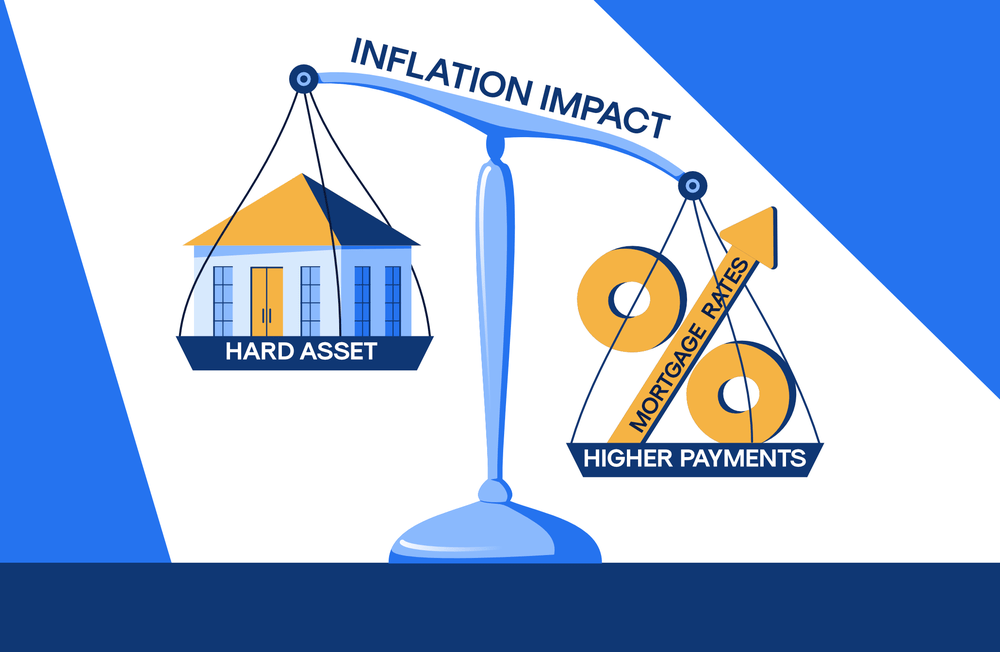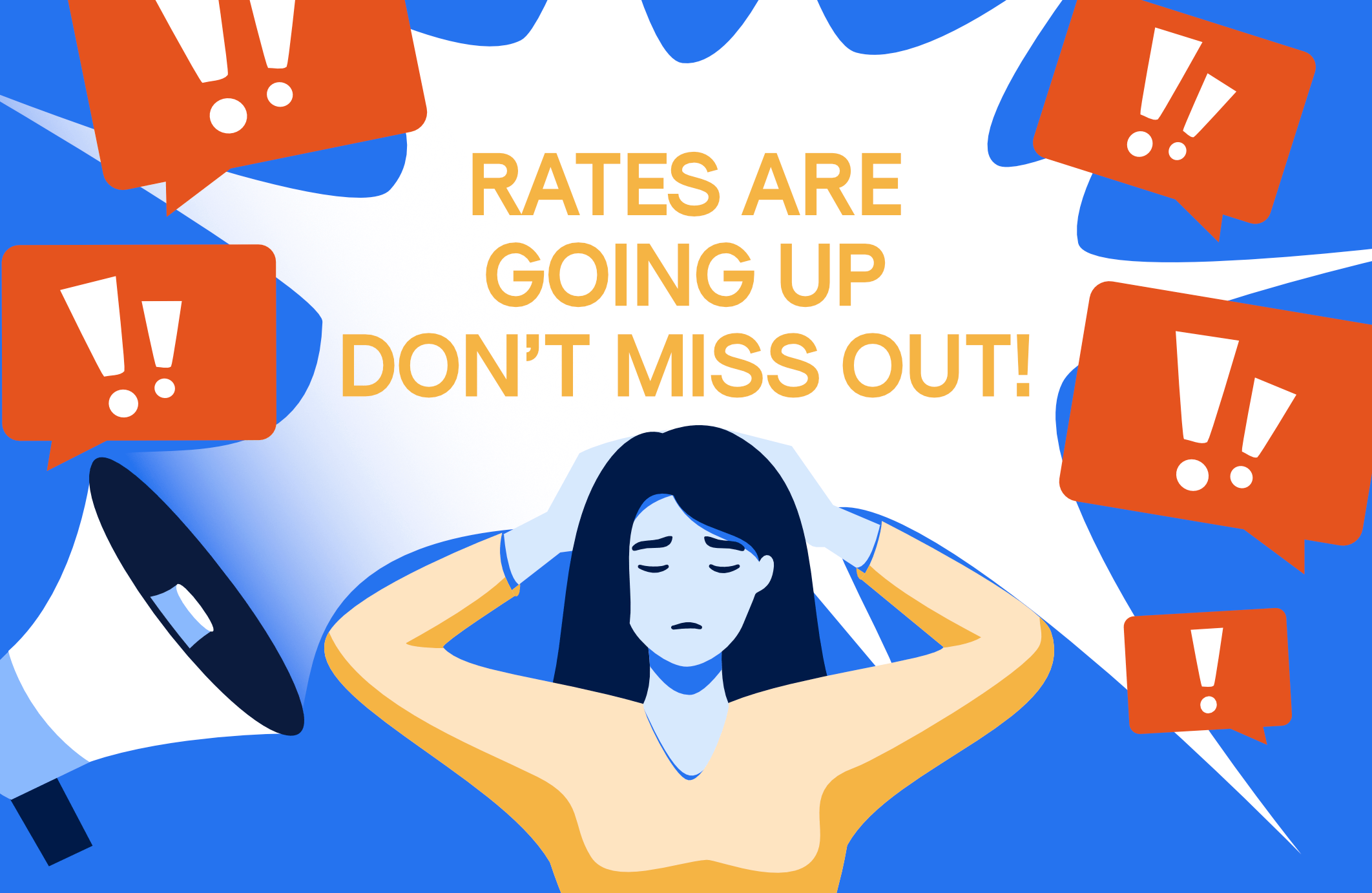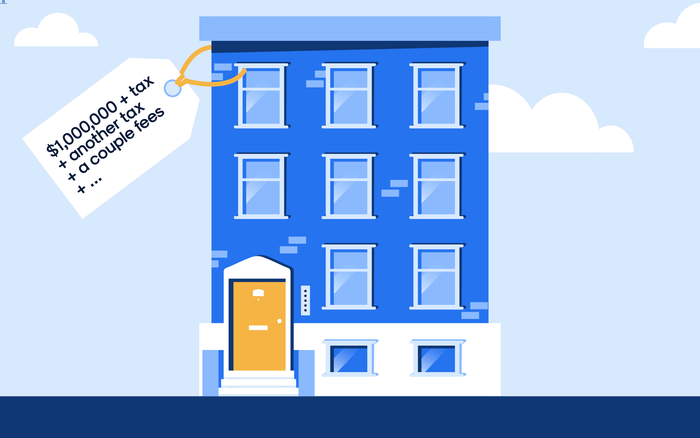Inflation is all anybody can talk about these days and for good reason. High inflation isn’t something the US has seen in decades and the Federal Reserve is currently fighting it by raising interest rates aggressively. Let’s explore how inflation affects the real estate market.
What Is Inflation and Why Has It Risen?
Inflation is simply higher prices. You may also hear it described as decreasing purchasing power, meaning the dollars in your pocket can’t buy as much stuff.
There are two ways to drive inflation - too much money or too few goods (things to buy). The recent rise in inflation was caused by both. The US government pumped about $5 trillion of stimulus into the economy in order to soften the blow from COVID. At the same time, factories shut down and shipping was disrupted resulting in fewer items available for sale.
In other words, a lot of money was pumped into the economy at the same time there was less to buy, causing prices to go up.
Why Is Inflation Good For Real Estate?
When people start talking about inflation, it’s not long before you’ll hear the term “hard assets.” Hard assets are what they sound like - real world things you can actually touch - and real estate is a prime example. Other examples are commodities (gold, oil, etc), art and even baseball cards.
Hard assets are seen as good investments during times of inflation because their values should go up to offset inflation. For example, there’s a fixed amount of gold in existence and if you double the amount of money in the world, theoretically the price of gold will double too.
By buying hard assets, you’re converting your dollars (which are decreasing in value) into goods (which are increasing in value).
The proponents of buying real estate in inflationary environments are betting that home prices will rise along with other hard assets. In today's world, that means the extra $5 trillion stimulus is flowing through the economy and allowing buyers to make higher offers on homes across the country.
Why Is Inflation Bad For Real Estate?
Everything above is 100% true. All else equal, real estate values will go up along with inflation. However, that ignores one extremely important factor - interest rates and specifically how the Federal Reserve uses interest rates to combat inflation.
When inflation gets too hot, the Fed raises interest rates to make it more expensive to borrow, slowing down spending and decreasing the supply of money. With less money sloshing around, the upward pressure on prices eases and inflation comes down to normal levels.
Housing is actually a perfect example. Buyers have to scale back their budgets when mortgage rates go from 3% to 5% (which we have seen recently) and home price appreciation slows.
This is why inflation can actually decrease real estate prices even though it’s a hard asset. Let’s consider an example to make it more concrete.
Say it’s late 2021 and you're planning to buy a $1,000,000 apartment with 20% down and a 3% mortgage rate so your mortgage payment would be $3,373. That’s the absolute max you can afford.
Fast forward to April 2022. You're still looking and unfortunately, mortgage rates are now 5%. Your max monthly payment is still $3,373 which means you can only afford a mortgage of $625,000. Simply because of higher rates, your budget declined almost 20%.
So even though real estate is a hard asset, higher rates reduce the ability for buyers to actually buy. These countervailing forces are why real estate typically does not skyrocket in inflationary environments.
One quick aside - the Fed rate is a driver of mortgage rates but it’s not a direct link. You can find more on that here.
Is There Correlation Between Inflation and Real Estate Prices?
The short answer is yes, there is a correlation between inflation and real estate prices but perhaps not what you might expect. Check out this chart of both going back to the 70s, the last time the US saw high inflation -

If you look closely, you’ll find an unexpected trend. Rather than real estate prices following upticks in inflation, they usually lead them. If you think about it, this makes sense. Inflation is higher prices and housing is one of the largest expenses for American families (approximately 30% of income). It would be hard to see such a large uptick in overall prices while housing prices remained low.
Let’s take a look at the most recent rise in inflation -

Here again you’ll see home prices led overall inflation. Another thing to keep in mind is reported home prices are backwards looking because it takes 2-3 months to close so the blue line should really be shifted to left a bit for a “real time” comparison.
Should You Buy Real Estate Because of Inflation?
No! Yoreevo’s answer regarding when you should buy is always the same - when your life and budget are ready.
Flipping real estate is extremely risky and likely to lose money because of the significant closing costs associated with buying and selling.
But even if you were trying to make a quick buck, buying real estate to beat inflation likely won't work. Just like higher interest rates, by the time everyone is talking about inflation, it’s too late. In fact, current forecasts are for inflation to peak any month now before settling down. In other words, home price appreciation should slow going forward. It definitely shouldn't accelerate.
There are also much more effective and efficient ways to bet on inflation if you’re so convinced, gold being the most popular.
Between rapid home price appreciation, inflation and higher interest rates, figuring out if buying is right for you can be overwhelming to say the least. For help understanding the market and your search, reach out to us at info@yoreevo.com and we’re happy to help.
Not only do we specialize in first time buyers, all of our clients receive a commission rebate for up to 2% of the purchase price!



